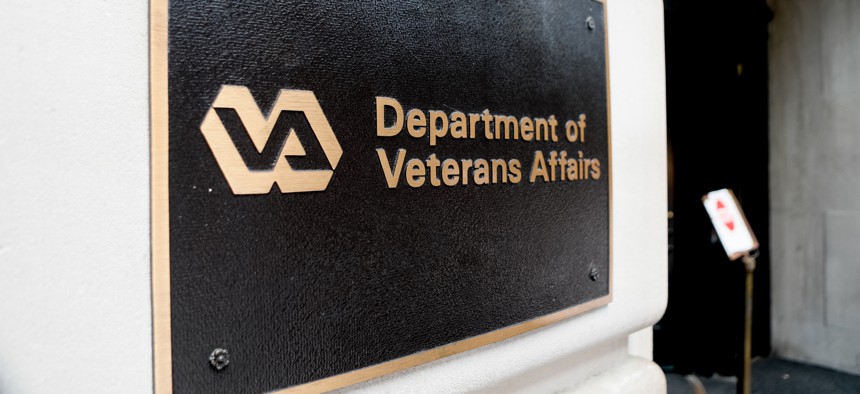Ongoing ‘reset’ looks to put VA’s EHR deployment back on track

P_Wei/Getty Images
An agency spokesperson said VA is "committed to resuming the system rollout" but performance and productivity goals need to be hit before additional deployments are rescheduled.
Although the Department of Veterans Affairs halted deployments of its new multibillion-dollar Oracle Cerner Millennium electronic health record system earlier this year to address continuing challenges with the software’s implementation, VA officials remain committed to the modernization program and hope ongoing fixes will streamline future rollouts of the system.
Since the Oracle Cerner system was first deployed in 2020 at the Mann-Grandstaff VA Medical Center in Spokane, Washington, VA’s ambitious effort to modernize its legacy health record system — known as the Veterans Health Information Systems and Technology Architecture, or VistA — has been plagued by cost overruns, patient safety issues, technical outages and usability concerns. The new software is meant to be interoperable with the Department of Defense’s modernized EHR system, also from Oracle Cerner.
VA announced in April that it was instituting a pause on future deployments of its Oracle Cerner EHR system as part of a larger “program reset” to prioritize system fixes at the five VA medical facilities currently using the software. Department officials previously delayed additional rollouts of the new system at other medical facilities until June 2023 to address “outstanding issues” with the software.
VA’s open-ended program reset announcement came after a highly critical watchdog report from the department’s Inspector General issued in July 2022 found that the new system at Mann-Grandstaff had directed over 11,000 veterans’ clinical orders to an “unknown queue” without alerting clinicians. It also followed repeated bipartisan criticism of the program from Congress, with lawmakers expressing particular ire after VA disclosed in March that the EHR system was found to have “fatally harmed” several veterans.
Those issues led to lawmakers calling for VA to renegotiate its contract with Oracle Cerner to prioritize accountability in the system’s deployment. The department extended its contract with the company in May, but the modified agreement included, in part, 28 performance metrics to incentivize system improvements moving forward.
VA has been adamant, however, that the EHR modernization program must continue, despite the challenges it has experienced so far. VA officials told lawmakers in March that modernizing the department’s legacy VistA system — which has been in use for more than four decades — instead of moving forward with the new EHR system “would require VistA be rewritten almost from scratch.”
Sen. Jon Tester, D-Mont., who chairs the Senate Veterans’ Affairs Committee, echoed the department’s sentiment, telling Nextgov/FCW in February that modernizing the VA’s EHR system was “not optional” and adding that “one way or another, it has to be done.”
The troubled rollout of the Oracle Cerner software, coupled with VA’s determination that an entirely new EHR system is needed, has led to bipartisan calls for new accountability requirements and program oversight within the department.
Rep. Mark Takano, D-Calif. — ranking member of the House Veterans’ Affairs Committee — and Rep. Mike Bost, R-Ill. — who chairs the panel — introduced legislation in April that would enhance oversight of the EHR system’s deployment by, in part, requiring medical facilities currently using the new software to meet or exceed performance metrics before any new rollouts can occur. The bill is based on Senate legislation introduced by Tester.
VA officials pushed back on the need for new legislation, however, telling lawmakers in July that enacting new requirements for the program could lead to “unintended outcomes in the future.” Both the department and Oracle Cerner have stressed the system upgrades and improvements they have made to the new EHR system during the ongoing reset period.
During a House Veterans’ Affairs Subcommittee hearing in November, Kurt DelBene — VA’s assistant secretary for information and technology and chief information officer — said that, as of Nov. 8, the department had gone 185 consecutive days without a reported outage in the system. DelBene also said the department is still planning a joint deployment of the new system with DOD at the Captain James A. Lovell Federal Health Care Center in North Chicago, Illinois next year, but does not currently have other rollouts of the system planned.
In a statement to Nextgov/FCW, VA Press Secretary Terrence Hayes said “VA will not schedule additional deployments until we are confident the new electronic health record is functioning highly at current sites and ready to deliver for veterans and VA clinicians at future sites.”
Hayes said readiness will be determined by “measurable improvements in the clinician and veteran experience,” as well as “sustained high performance and high reliability of the system” and “improved productivity at the sites where the new federal EHR is in use.”
“When these criteria have been met and the reset concludes, VA will release a new deployment schedule and resume deployment activities at new sites,” he added. “Meantime, the department remains committed to resuming the system rollout and, in 2024, will be continuously evaluating readiness to restart.”


